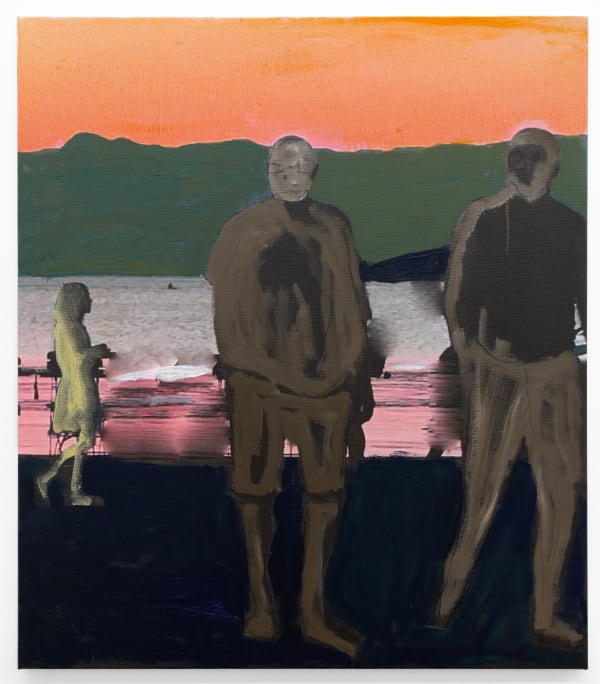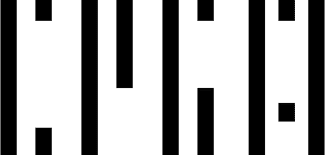-
Galerie Peter Kilchmann is delighted to present for the first time in Paris and for the fifth time with the gallery, Damaged Goods the new solo exhibition by Maja Bajević (*1967 in Sarajevo, Bosnia and Herzegovina; lives and works in Paris). This exhibition provides the artist with the opportunity to continue several ongoing famous series and engage them in dialogue with new works. Gathered into a new ensemble, the gallery showcases ceramic sculptures, neon lights, an installation, embroideries, a new video, and a set of paintings.
"Who admires ascends." * Empathy is at the heart of Damaged Goods: an expression that evokes both damaged goods and individuals who have experienced adversity. Bajević invites her audience to walk through heterogeneous artistic proposals that share a similar wish: to animate this feeling, this movement towards, in a spectator momentarily freed from the vicissitudes of their own existence. This allows the viewer to be absorbed by the history of women, immigrants and gives them the chance to carry away at least a little of the memory of those who have contributed so much to the preciousness and multiplicity of our worlds.
-
With Gap (embroidery on cotton, 89 x 130 cm, 2024), the powers and successes are inequitably distributed based on gender, both in the public and private spheres. Why don’t you love me anymore (embroidery on cotton, 81 x 115.5 cm, 2024) delves even deeper into the intimate. However, she is distinctly depicted higher than he, the constancy of her love that does not wane and moves according to a calm curve finally ensures her advantage.
The series titled L'Origine du Monde (ceramics, variable dimensions, 2024) conveys both shock and horror at contemplating these findings, as well as the absurdity and obsolescence of the kind of thinking that encourages and/or perpetuates these phenomena. The female attributes are the size of a fruit and fit in the palm of the hand. . While undoubtedly frightening to be thus separated from entire bodies, these sculptures also playfully offer buttocks and lips, roundness and intimacy to the absurd signs that patriarchal societies want to engrave on them.
-
-

-
The evocative power of these short phrases engages the viewer in a reading that summons both the political and the poetic. An Artist Who Has No Country Is No Artist (blown glass and neon, 52 x 104 x 9,5 cm, 2024) borrows its rhythm and prelude from Mladen Stilinović's work An Artist Who Cannot Speak English Is No Artist (1992).
-
I am sorry, 2024 Single channel video, sound, color, 23 min Ed. of 5 (+2 AP)
-
Similar to judicial identification photographs, Bajević's face is portrayed frontally and in both profile through three panels, with overlapping and merging voices. The text is recited by each of these faces in French, English, and German. In the work, I am sorry (single channel video, sound, color, complete version 23 min.), the artist reveals and confesses some of the regrets and anxieties of her journey. The tone is solemn, and as the portraits shift positions, it becomes evident that these apologies are not solely for the viewer but are also directed towards these alter egos speaking in different languages. Even if her home-country ?? no longer exists, there is still a need to be seen or heard to affirm their existence. Inevitably, much like a repetitive noise or a ubiquitous image that becomes insignificant due to familiarity, the silhouettes evade and dissolve into a blinding white light.
-
Socialists (embroidery on cotton, 100 x 148 cm, 2022) reiterates the words attributed to the German Protestant clergyman Martin Niemöller, who sympathized with National Socialism in the 1930s before becoming a figure of resistance.
-
Marcelle Marcel, an alter ego, inhabits the world quite differently. Expatriate, she/he moves towards the destiny she/he creates with the ardor and all the freedom of youth. She/he is in a potential perpetual movement, she/he knows no boundaries, whether material or conceptual. The field of perspectives to explore is infinite, her/his freedom of action inexhaustible.
-

-
Published in Slash, Jan. 2024

Galerie Peter Kilchmann
rue des Arquebusiers, Paris
, 6 January - 22 February 2024
Be the first to know updates about Galerie Peter Kilchmann
* denotes required fields
We will process the personal data you have supplied to communicate with you in accordance with our Privacy Policy. You can unsubscribe or change your preferences at any time by clicking the link in our emails.

















